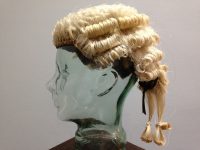ICAC Investigates Senior Crown Prosecutor Margaret Cunneen: Justifiable Investigation or Witchhunt?

Last Thursday, the Independent Commission Against Corruption (ICAC) announced that it would begin an investigation into the conduct of deputy Senior Crown Prosecutor Margaret Cunneen, following allegations that she attempted to “pervert the course of justice.”
The allegations surfaced after reports that Ms Cunneen advised her son’s girlfriend, Sophia Tilley, to fake chest pains to avoid being breath tested after being involved in a serious car accident in May.
The ICAC’s inquiry into Ms Cunneen’s conduct, dubbed “Operation Hale,” is due to begin on November 10.
However, following backlash from senior members of the legal profession, as well as key political players, it was announced late on Monday that there would be an audit into the ICAC’s decision to commence the investigation.
The audit will be headed by ICAC inspector David Levine QC, a former Supreme Court judge, and will require the ICAC to hand over all material which forms the basis of its investigation.
Mr Levine’s decision to commence an audit of the ICAC comes amidst increased criticism of the Commission, which has been accused of using its powers to “ruin reputations” of key political figures in the absence of any conclusive evidence.
But does the ICAC really have too much power, or are its concerns valid?
What is the ICAC?
The Independent Commission Against Corruption was established in 1989 by NSW Premier Nick Greiner, with the key role of investigating corruption within public agencies and individuals employed by these bodies who are performing public sector functions.
It has the power to investigate allegations of corruption in all public sector agencies except for the NSW Police Force.
Recent ICAC investigations have centred upon members of parliament, councillors, members of the judiciary and, most recently, public prosecutors.
Through this function, it also seeks to set an example for the general public by educating them about the dangers and potential consequences of engaging in corrupt conduct.
However, in Ms Cunneen’s case, there has been dispute about whether her conduct in advising Miss Tilley to “fake chest pains” constituted an exercise of a public function in the first place.
In condemning the Commission’s decision to investigate Ms Cunneen, former Premier and founder of the ICAC Nick Greiner suggested on Monday that Ms Cunneen’s alleged conduct was “personal” rather than professional.
Accordingly, he suggested that the ICAC had overstepped its boundaries in launching the investigation, which would be better dealt with by the police.
These comments followed considerable criticism of the ICAC’s functions after the resignation of former NSW Premier Barry O’Farrell after an ICAC investigation earlier this year.
Prominent political and media figures have suggested that the Commission is responsible for destroying the lives of innocent people and tarnishing reputations even where there is little evidence to prove the alleged wrongdoing.
Accordingly, there have been suggestions that ICAC hearings should be held in private to spare individuals the embarrassment of being “named and shamed.”
However, others have rejected these calls, suggesting that it is in the public interest for Commissions to be held openly in order to inform and educate the public about corruption and to promote transparency and accountability.
Supporters of the Commission have vigorously defended its powers of investigation, contending that as less than one percent of all complaints made are actually investigated by the ICAC, there is clear evidence that the Commission makes an informed judgment about what to investigate.
Perverting the course of justice
Accusations directed towards Ms Cunneen have primarily concerned her actions in “perverting the course of justice.”
But what does perverting the course of justice mean, and what could the consequences for Ms Cunneen be should the allegations be proved?
The offence of “perverting the course of justice” is contained in section 319 of the Crimes Act 1900 (NSW).
That section says that it is a criminal offence to do anything which may obstruct, prevent or defeat justice from being carried out under the law.
It must also be proved that the accused person intended to cause some injustice through their actions.
Examples of conduct that may be seen to “pervert the course of justice” include:
- encouraging someone to plead guilty to an offence they did not commit,
- asking someone to prove a false alibi, and
- making false statements or claims which may influence the outcome of a criminal proceeding.
The maximum penalty for the offence is 14 years imprisonment.
This heavy penalty is intended to act as a strong deterrent and to reflect the importance of upholding justice as a key function of the legal system.
Ms Cunneen’s case is not first time that a senior member of the legal profession has been accused of “perverting the course of justice”.
In 2007, prominent Federal Court Justice Marcus Einfeld was convicted after it was found that he attempted to avoid a speeding fine by claiming that his then deceased friend was driving his car at the time of the offence.
Einfeld was sentenced to 3 years in prison, with a non-parole period of 2 years.
He was released in 2011.
Following his conviction, the Court of Appeal found that Einfeld’s actions constituted professional misconduct, and as a result he was struck off the Roll of Lawyers on the basis that he was not a “fit and proper person.”
This means that Einfeld can no longer practice law in New South Wales.
Prosecutor’s duties
The accusations against Ms Cunneen are particularly serious because of her role as a senior Crown Prosecutor.
Because of the importance of their role, prosecutors are bound by professional rules and guidelines which emphasise the ideals of fairness and justice.
As a “minister of justice,” prosecutors are expected to promote integrity in assisting courts to arrive at the truth.
This means that they must be seen to act independently and in the best interests of the public – for example, they cannot simply seek to obtain a conviction, but must present all evidence fairly before the court so that it can make an informed decision, even where that evidence might be unfavourable to the prosecution case.
Obviously, this means that prosecutors should not seek to protect personal interests by encouraging others to lie to police.
However, prominent politicians and lawyers have questioned the basis for the claims against Ms Cunneen, who has led a colourful career prosecuting some of the country’s most notorious sexual assault cases.
She is a highly respected member of the legal profession and has held numerous offices in her time; serving on the NSW Bar Council and recently leading a Commission of Inquiry into allegations of child sex abuse in the Catholic Church diocese of Maitland-Newcastle.
At present, it is unclear who made the complaints against Ms Cunneen, which she describes as “malicious.”
She has denied the allegations, but has agreed to stand aside from her role as Crown Prosecutor until the investigation is complete.
The inquiry will not interfere with the Commission’s investigation itself, but will oversee the way in which the inquiry is conducted to ensure that all parties are treated fairly and without prejudice.
The claims that Ms Cunneen has actually broken the law appear to be tenuous at best, and she has now commenced legal proceedings of her own against the ICAC.
Until the investigation process has taken-place, one must bear in mind the frequently touted phrase, “innocent until proven guilty.”






